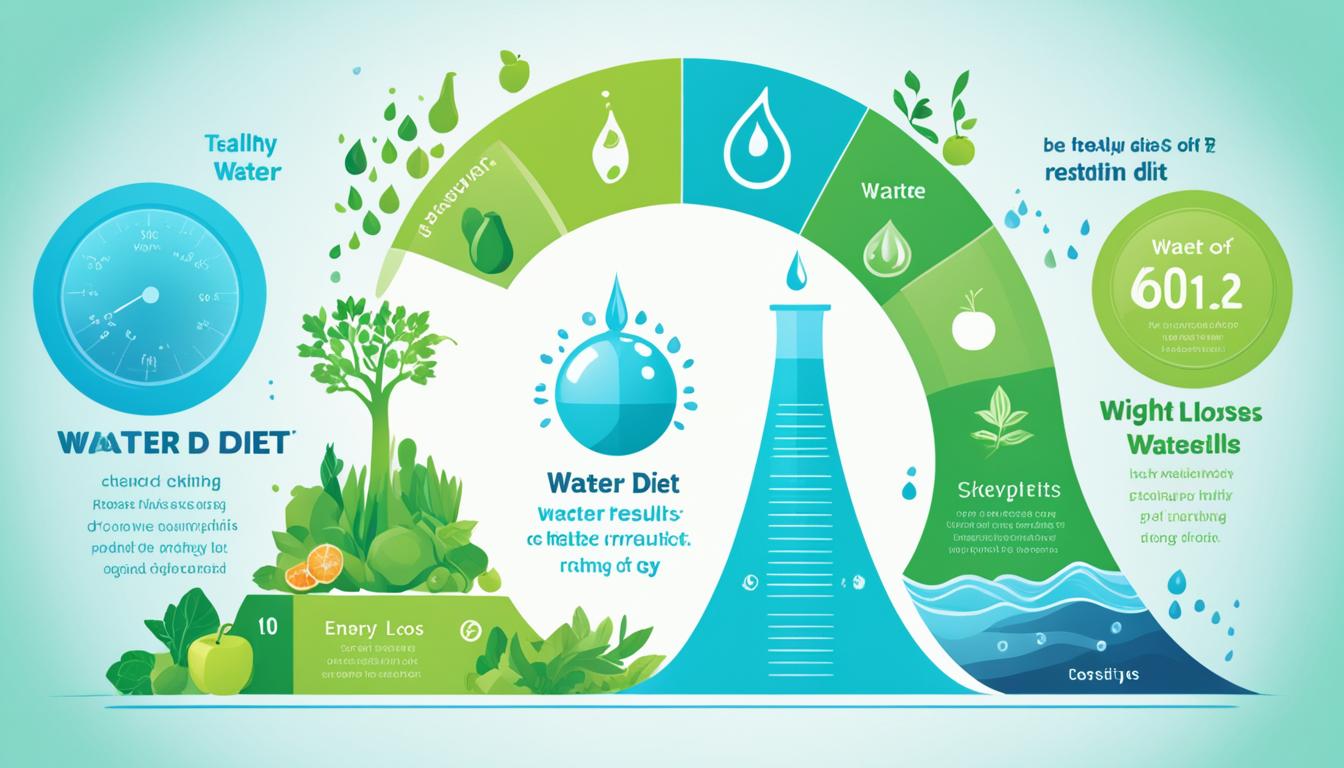Water fasting is when people drink only water for a set time, like 24 to 72 hours. It stands out for its health perks and perils. If you’re thinking about trying this diet, learning its long-lasting effects is a must. Always have a doctor oversee your fasting, especially for over 72 hours. Some studies support that fasting with water could cut cancer, heart disease, and diabetes dangers. Still, it comes with warnings, like risking losing muscle, getting dehydrated, and experiencing low blood pressure when standing.
Aiding in autophagy, a process where cells clean up, and lowering blood pressure are potential upsides of water fasting. But, it’s not for everyone. Those with certain health conditions, like gout or eating issues, might face worse effects.
Ending your fast should be slow, starting with simple meals to prevent upset. Water fasting, though helpful for some, needs more science to back its benefits. Before diving in, be well-informed and plan thoroughly to avoid any problems.
Key Takeaways
- Water fasting typically ranges from 24 to 72 hours, with medical supervision required beyond this period.
- Research suggests potential health benefits such as reduced risk of chronic diseases.
- Autophagy, a cellular recycling process, may be promoted through water fasting.
- Health risks include muscle mass loss, dehydration, and orthostatic hypotension.
- Not everyone should water fast; those with certain medical conditions should avoid it.
- Properly preparing for and breaking a water fast is essential for minimizing discomfort and risks.
- More comprehensive human studies are needed to fully understand the long-term impacts of the water diet.
Introduction to the Water Diet
The water diet, known as water fasting, means only drinking water. This can go on for 24 to 72 hours. Some choose to fast even longer, often with a doctor’s advice. It has deep roots in religion and is now also seen as a way to be healthier.
People believe this diet can lead to many health benefits. These include losing weight and lowering the risk of diabetes, cancer, and heart disease. But, there are also major risks to not eating or drinking for a long time.
It can make you feel dizzy and weak. Since about a quarter of the water we get comes from food, you might not be getting enough. This can lead to dehydration and even a sharp blood pressure drop when standing up. For your safety, some should not do this, like kids, older adults, and those with health issues. Pregnant or nursing women should also avoid it.
Some studies suggest that longer water fasts can have benefits. These might include lower blood pressure and repairing damaged cells. It might also help control hormones and inflammation better. But, we need more research to be sure about these effects on health.
Consider these key aspects while exploring the concept of water fasting:
- Only water is consumed during the fast, lasting typically between 24 to 72 hours.
- Potential benefits include weight loss, enhanced insulin and leptin sensitivity, and decreased risk of chronic diseases.
- Risks involve dehydration, weakness, dizziness, and possible deterioration of certain medical conditions.
If you plan to try water fasting, preparation and aftercare are key. Drink mineral water to get vital nutrients before and after. Then, start eating slowly with small meals. This prevents health issues that can occur when food is reintroduced too quickly.
| Fasting Duration | Potential Benefits | Possible Risks |
|---|---|---|
| 24-72 hours (Typical) | Weight loss, enhanced insulin sensitivity | Dizziness, dehydration |
| 7 days (Extended) | Lower blood pressure, autophagy promotion | Dehydration, orthostatic hypotension |
Understanding the Long-Term Effects of the Water Diet
Water fasting means only drinking water for 24 to 72 hours. People try this for potential health upsides and downsides. It’s important to look at the possible long-term results to decide wisely.
Insights on Health Benefits
Benefits of sustained water diet cover a lot of health areas. Research points to lower risks for chronic diseases like cancer, heart issues, and diabetes. It can also boost autophagy, which cleans out bad cells, slowing down aging and possibly stopping conditions like Alzheimer’s.
Long water fasts could lower your blood pressure and help with how your body handles insulin and leptin. This can better your metabolism and make you feel full sooner, which might help manage your weight. Weight loss can happen as well, but this might include muscle loss. Fasting could also improve your cholesterol levels.

Potential Health Risks
The risks of extended water diet are severe too. It’s easy to get dehydrated as there’s no fluid in food. Feeling dizzy or light-headed from low blood pressure is another issue. You might make existing problems like gout or eating disorders worse, leading to bigger health troubles.
Without medical supervision, you might end up with dangerous shortages of nutrients and electrolytes. Slowly adding food back after a fast is essential to prevent a condition called refeeding syndrome. Skipping meals can cause your blood sugar to fall, making you feel tired or sick.
Here’s a side-by-side look at some major pros and cons:
| Key Aspects | Benefits | Risks |
|---|---|---|
| Autophagy | Promotes cellular rejuvenation | None specifically noted |
| Blood Pressure | Lowers levels in hypertensive individuals | Can cause orthostatic hypotension |
| Insulin Sensitivity | Improves sensitivity and metabolism | Potential low blood sugar |
| Hydration | Maintains with adequate water intake | Dehydration risk |
| Body Weight | Weight loss | Muscle mass loss |
The facts present the water diet’s benefits and risks. These need careful thought and, often, expert guidance.
Health Benefits of Water Fasting
Water fasting is a practice where people drink only water for up to 72 hours. It has become popular for its health benefits. From repairing cells to enhancing the heart’s well-being, water fasting shows promise. Despite the few human studies, new research is shedding light on its effects.
Autophagy and Cellular Rejuvenation
During water fasting, your body activates a process called autophagy. This means it clears out damaged cells and starts to repair itself. Autophagy has shown it can lessen the chances of serious illnesses like cancer and diseases that affect the brain.
Blood Pressure and Cardiovascular Health
Heart health seems to get better with water fasting, too. After about 17 days of fasting with medical support, a decrease in systolic blood pressure was noted. Blood fats (triglycerides) also dropped after just one day of fasting. This could help in managing high blood pressure and keeping the heart healthy.
Impact on Insulin and Leptin Sensitivity
Water fasting has also shown improvements in how our bodies manage insulin. Research from a 2023 review indicates that fasting from five to 20 days lessens blood sugar and insulin levels. This could help with insulin resistance. Moreover, fasting influences leptin, a hormone tied to hunger, and helps with metabolic balance.
| Health Benefit | Study Findings |
|---|---|
| Reduction in Systolic Blood Pressure | Observed in individuals fasting for 17 days |
| Lower Blood Triglyceride Levels | Noted in healthy adults fasting for 24 hours |
| Insulin Sensitivity Enhancement | Found in fasting periods of five to 20 days |
These early findings are exciting, but we need more large-scale human trials to be sure. It’s vital to explore the long-term health effects of water fasting thoroughly. This calls for both hope and careful study in this intriguing field.
Dangers and Risks Associated with Prolonged Water Fasting
While water fasting can improve things like how your body handles insulin and leptin, it’s key to understand the dangers of prolonged water fasting. Going more than 24–72 hours without food and water can be harmful. This is especially true if you don’t have a doctor’s advice.

- Loss of Muscle Mass: Your body may start using muscle for energy, which isn’t good for your health and strength.
- Dehydration: Long periods without adding electrolytes can lead to a lack of enough body fluids and cause big problems.
- Electrolyte Imbalance: Skipping meals can mess with the balance of important minerals in your body. This can lead to serious issues like heart problems and seizures.
- Orthostatic Hypotension: Your blood pressure might suddenly drop if you fast for too long, leading to feeling lightheaded or even passing out.
- Exacerbation of Pre-existing Conditions: If you’re already dealing with health issues like gout, eating disorders, or kidney problems, fasting can make them worse.
Refeeding after a long fast also has its dangers, like refeeding syndrome. This can cause serious changes in your body’s fluids and minerals, which could lead to death.
Because of the serious dangers of prolonged water fasting, advice from a healthcare professional is critical. They can help you understand if the health benefits are worth the risks.
Who Should Avoid the Water Diet
Water fasting can be good for some, but not for everyone. Some people should be very careful, or maybe not try this at all, because of health issues. It’s important to know who might not do well on a water diet. This is especially true for different age groups.
Medical Conditions
People with certain health problems need to avoid water fasting. For example, those with heart problems can find it hard. It might make their symptoms worse.
People with type 1 diabetes or ongoing health issues should also avoid it. A water diet can cause blood sugar levels to become dangerous. Anyone who is very thin might not get enough nutrients from fasting. This is not good for their health. In these cases, a doctor’s advice is key. The risks of a water diet for these people is serious.
Age and Life Stage Considerations
Water fasting is not suitable for kids or teens. Their bodies are still growing. For them, fasting could be bad for how they grow.
Older people might also struggle because they need more nutrients. Pregnant and nursing women should not do it. It’s not safe for the mother or the baby. For these groups, medical help is very important before trying a water diet. The concerns about fasting are very real.
Although water fasting has its benefits, it also has its risks. It can help with some health issues. But, talking to a doctor first is a must. Make sure it’s safe for you before you start.
Safe Practices for Water Fasting
Water fasting can boost health if done right. Follow safe steps to get the most out of it without risks.
Preparation Tips
Start by preparing for your fast. Begin eating smaller meals and less solid food a few days before. Drink 2-3 liters of water each day to stay hydrated. This is to make sure your body is ready. Also, avoid hard exercises and talk to a doctor about your plan.[Source].
Post-Fast Refeeding
Refeeding after the fast is key. Start eating small portions of foods that are easy to digest, like fruits and veggies. Slowly, you can have more complex foods over a few days. This helps your body get back to eating regular food safely.
By following these steps, you can fast safely. Doing so helps you gain the benefits without hurting your health.
Scientific Insights on Water Fasting
Studies show that water fasting can greatly affect our health, mainly our metabolism. It means not eating and only drinking water for a certain time. People in a study lost more than 13 pounds on average and saw big drops in body fat after an eight-day fast.
Research highlights several health benefits of water fasting. Blood sugar, insulin, and A1c levels drop after a long fast. Water fasting also starts ketosis, helping with weight loss. Yet, it might cause you to lose muscle too.
Through water fasting, autophagy can be triggered. This process is good for cell renewal and might slow down aging. Fasting could also lower blood pressure for some and improve cholesterol. But, these changes may not last long after the fast.
A study worked with 40 overweight people who were not diabetic. Thirty-three finished the study. Six weeks later, they all showed better health, like less weight, lower BMI, and smaller waists. Their blood pressure also got better.
| Health Indicator | Initial | Post-Fast | Follow-Up |
|---|---|---|---|
| Body Weight (BW) | 85 kg | 72 kg | 75 kg |
| Body Mass Index (BMI) | 30 kg/m2 | 25 kg/m2 | 27 kg/m2 |
| Systolic Blood Pressure (SBP) | 135 mmHg | 120 mmHg | 125 mmHg |
| Diastolic Blood Pressure (DBP) | 85 mmHg | 75 mmHg | 78 mmHg |
During fasting, some people had mild issues like headaches and tiredness. But, metabolic health improved significantly, including better insulin use and lower belly fat.
These findings hint that fasting’s health perks might not last forever. This leaves a question about the worth of such diets. We need more solid studies to know the real, long-term effects on our health.
Conclusion
The water diet shows both good and bad sides. It could help lower blood pressure and boost your immune system. It also helps your body fix itself at a cell level, known as autophagy. But, doing this diet could make you lose muscle, become dehydrated, or upset your metabolism.
Research on obese people who tried this diet found mixed results. Some good things happened, like lower blood pressure and waist size. But, their blood fats and some other health markers went up. So, the effects weren’t only positive.
So, if you want to try water fasting, be careful. Talk to a doctor first. We still need more studies to really know if this diet is safe and works well. Getting personal advice from a doctor is key to avoiding any problems.




